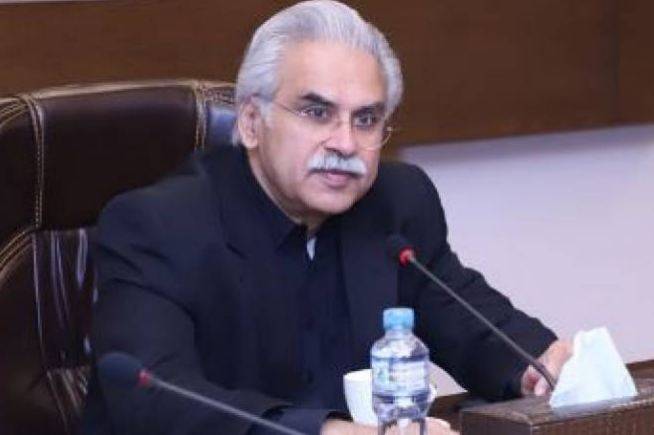Islamabad (Web Desk): Special Assistant to the Prime Minister (SAPM) on National Health Services Dr Zafar Mirza has said that the federal government is pursuing a holistic strategy to combat COVID-19.
In a statement on Wednesday, in response to the World Health Organisation (WHO) letter, he the government has made best sovereign decisions in the best interest of the people of Pakistan.
Dr Zafar Mirza said we have to make tough policy choices to strike a balance between lives and livelihoods.
The SAPM said Pakistan has consciously but gradually eased generalised lockdowns but at the same time it has focused on enforcement of standard operating procedures (SOPs) in shops, industries, mosques and public transport etc.
Mask donning has been made compulsory in the country, Mirza said adding that a robust tracing, testing and quarantine policy has been developed in the country to identify hotspots and cordon off them. Currently there are more than seven hundred such smart lockdowns in place.
"Other plank of our strategy is ramping up of our health system to cater to the growing number of patients," Dr Mirza asserted.
The SAPM said Pakistan’s choice of policies has been guided by the best evidence available about the disease spread and government’s best assessment of the fast deteriorating socio economic conditions in the country.
Dr Zafar Mirza said Pakistan appreciates its longstanding partnership with the WHO in health including in this pandemic.
He said that WHO only takes health-related factors into account whereas governments have to think of the public’s livelihoods as well.
On Tuesday, the WHO recommended to the Punjab government to implement a two-week strict lockdown, intermittently, to stem the exponential spike in novel coronavirus cases in the province.
WHO Country Head for Pakistan Dr Palitha Mahipala had suggested that the country doesn't meet any prerequisites for lifting "intermittent lockdown" to curb the spread of Covid-19.
The letter dated June 7 — addressed to Punjab Health Minister Dr Yasmin Rashid —states that the coronavirus has spread to almost all districts in the country, with major cities making up a majority of national cases.
"Government intervention on April 12 detailing social distancing measures, including movement restrictions, closure of schools and businesses, international travel restrictions, and geographical area restrictions were instituted with the aim of limiting the spread of the disease."
However, the partial relaxation of restrictions on May 1, followed by a complete relaxation on May 22, has caused the rate of infection to increase, the letter noted.
According to WHO recommendations, any government that wishes to lift lockdown restrictions must meet a set of conditions. The letter noted that so far, Pakistan has not met any of the conditions which include:
Disease transmission is under control
Health systems can "detect, test, isolate and treat every case and trace every contact"
Hot spot risks are minimised in vulnerable places
Schools, workplaces and other essential places should have preventive measures
The risk of importing new cases can be managed
Communities are fully educated, engaged and empowered to live under a new normal
It is pertinent to mention that the number of confirmed COVID-19 cases in Pakistan on Wednesday rose to 113,702 after 5,385 new infections were reported over the past 24 hours.
Overall, 43,460 cases were reported in Punjab, 41,303 in Sindh, 14,527 in Khyber Pakhtunkhwa, 7,031 in Balochistan, 5,963 in Islamabad, 974 in Gilgit-Baltistan (GB) and 444 in Azad Jammu and Kashmir (AJK).
According to the government's Covid-19 portal, the death toll related to coronavirus has reached 2,255 with 83 fatalities reported during the last 24 hours while around 36,308 patients have fully recovered from the disease.
Meanwhile, the global coronavirus cases have reportedly surpassed 7.21 million and death toll tops 408,000.


